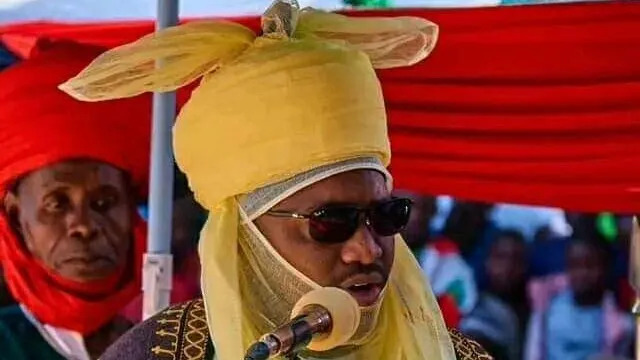Ramadan’s Grand Finale: Dutse’s Durbar Festival Honors Faith and Tradition

Durbar Festival lights up Northern Nigeria with an extraordinary display of history, culture and communal pride as Dutse hosts one of the most dazzling processions of the season.
On a day marked by vibrant colors, the booming of trumpets, and the crack of gunfire, the festival heralds the end of Ramadan with traditions that have been passed down for centuries.
The event begins at dawn with prayers and the national anthem outside government buildings—a prelude to the majestic parade that follows. Ornately dressed horsemen, musicians, artillerymen, and noblemen fill the streets as they pay homage to their Emir.
 Durbar horse procession in Dutse
Durbar horse procession in DutseHorses bedecked in colorful fabrics and precious metals race along city squares, each contingent uniquely decorated to showcase the rich diversity within the emirate.
As described in historical accounts, this centuries-old festival traces its origins to the 14th and 15th centuries in Kano and other Hausa-speaking regions, having evolved from a military parade into a full-blown cultural celebration commemorating Islamic festivities.
 Hameen Nuhu Sunusi, emir of Dutse
Hameen Nuhu Sunusi, emir of DutseThe highlight of the procession is the arrival of Emir Hameem Nuhu Sunusi, who rides a white stallion under a patterned blue parasol—a symbol of his prestige and authority.
Directly capturing the spirit of the occasion, Emir Sunusi remarked, "In lots of places when you talk about Nigeria, it is negative things that come to mind," adding, "Once UNESCO recognizes you it means you will be known all across the world. This will help us a lot in making other people know us more."
His words reflect a deep-seated desire to counter prevailing negative perceptions and to shine a light on the rich cultural heritage of Northern Nigeria.
The community's admiration for the Durbar is palpable. Spectator Awwal Adamu, a 27-year-old undergraduate, enthusiastically shared, "Durbar spices up the Eid celebrations." This sentiment is shared by a Dutse resident, a 45-year-old mother of eight, who stated, "I can't imagine the Eid without the Durbar."
Such declarations not only underscore the festival’s importance as a cultural spectacle but also highlight its role in reinforcing community identity and pride.
Amid the revelry, the festival also serves as a crucial forum for addressing local issues. During the procession, Emir Sunusi took the opportunity to discuss pressing concerns with Governor Umar Namadi.
Among the grievances raised were the menaces of erosion and flooding, as well as urgent calls from the community to expedite the establishment of a new police training college. This blend of celebration and civic dialogue illustrates the multifaceted role of the Durbar as both a cultural and administrative platform.
 Royal hunters fired gun to announce Emir arrival
Royal hunters fired gun to announce Emir arrivalThe festival’s grandeur is further enriched by traditional practices such as drumming, dancing, and singing—elements that bring to life the region’s storied past of Saharan trade routes and military prowess.
In addition to the horsemanship on display, the procession features other traditional animals, including a camel draped in a red, embroidered blanket, adding yet another layer to the spectacle.
Across major cities like Kano, Katsina, Sokoto, Bida and Zaria, the Durbar Festival stands as a testament to the enduring legacy of Hausa traditions. It is not only a celebration of Islamic holidays such as Eid al-Fitr but also a vibrant reminder of the region’s historical importance.
As the festival continues over several days in Dutse, with the Emir touring the city to meet residents, it reaffirms its place as a cultural beacon—showcasing the “good people, peace-loving, honest people” of Nigeria’s north.
Nigeria is a religiously diverse nation where Islam and Christianity are the two dominant faiths. Estimates suggest that roughly 50% of Nigeria's population, which exceeds 200 million, are Muslims—amounting to around 100 million people.
This predominantly Muslim demographic is largely concentrated in the northern regions of the country, while Christianity is more common in the south and central areas.
In addition to these major religions, a smaller percentage of Nigerians continue to practice indigenous traditional beliefs, adding to the rich cultural and religious diversity of the nation.




